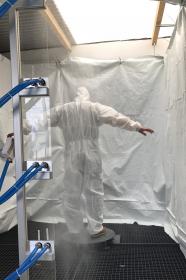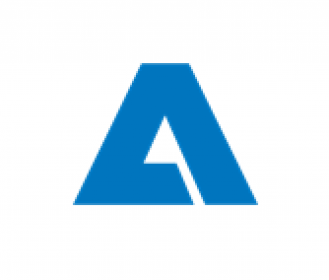Hohenstein certifies protective clothing and gloves against chemicals and infectious agents
Since April 2023, the testing service provider Hohenstein has been testing and certifying in two new areas in the field of protective clothing: protective suits and gloves against chemicals and infectious agents. These are covered by Regulation (EU) 2016/425 and are therefore personal protective equipment (PPE).
Protective clothing against infectious agents is used in many types of work: for example, work at sewage plants, waste disposal, animal care, disposal of hazardous waste from hospitals, etc. Workers are exposed to unknown infectious agents (microorganisms, parasites). The protective clothing should protect wearers from the mediums in which the microorganisms are contained, such as liquids, aerosols or solid dust particles.
Hohenstein tests and certifies the following types:
- EN 14605: Protective clothing against liquid chemicals: Liquid-tight (type 3) or spray-tight (type 4) as well as partial protection types PB[3] and PB[4]
- EN 13982-1: Protective clothing against airborne solid particulates: Type 5
- EN 13034: Protective clothing against liquid chemicals: Type 6 and PB[6]
Hohenstein










